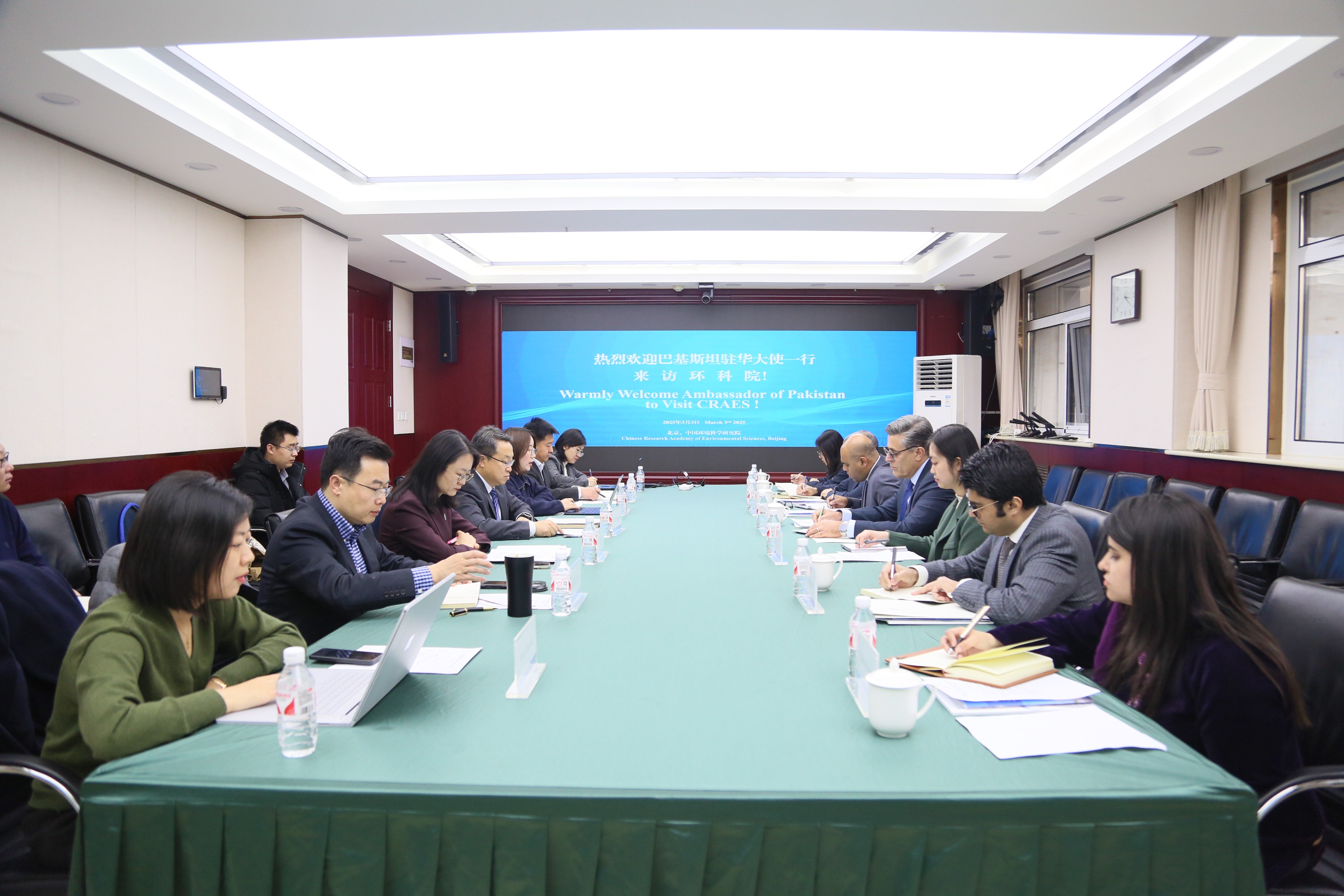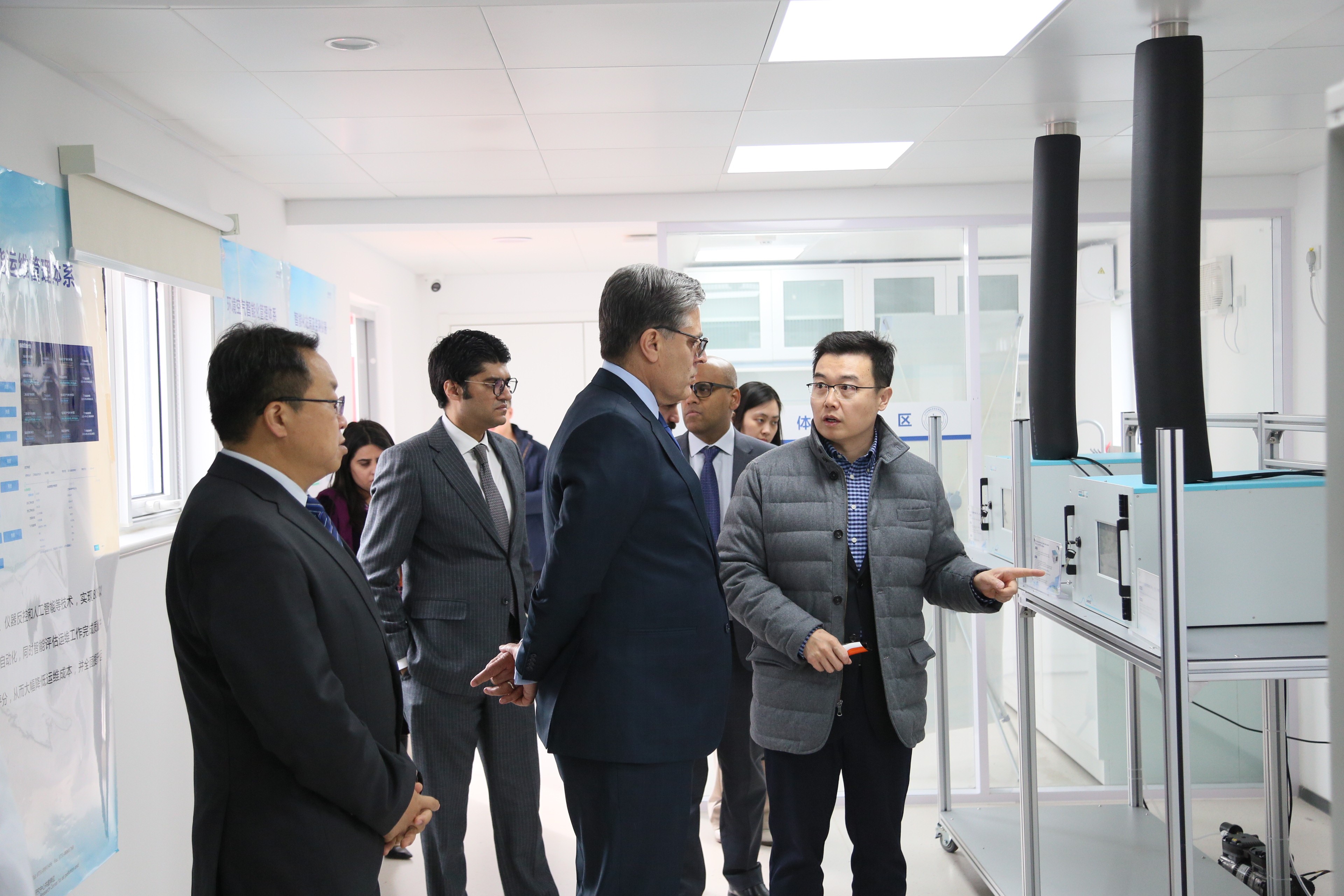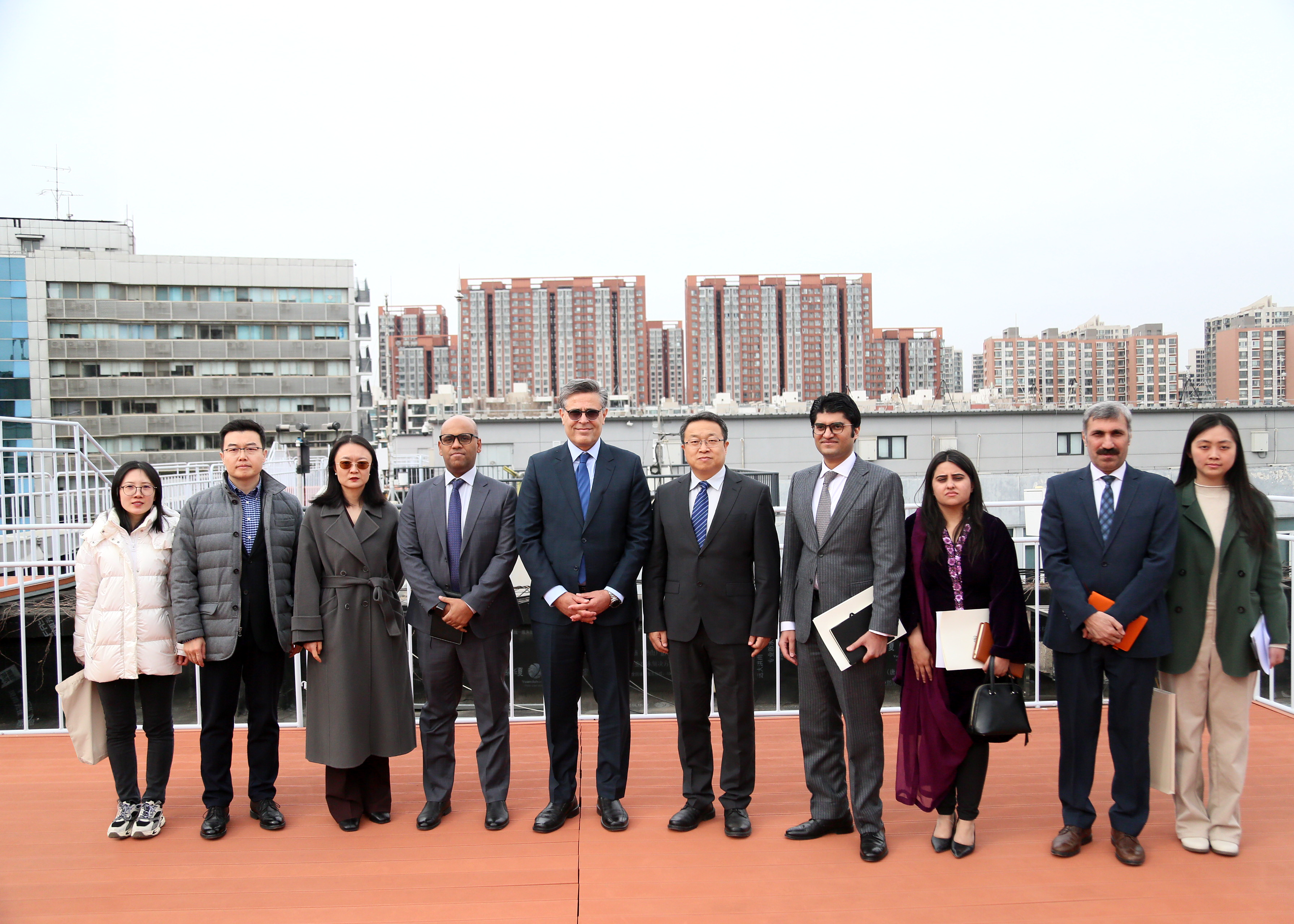
On March 3, 2025, Khalil Hashmi, Pakistan Ambassador to China, led a delegation to visit the Chinese Research Academy of Environmental Sciences (CRAES) for in-depth discussions on China-Pakistan cooperation in environmental science and technology. Prof. Quan Zhanjun, Vice President of CRAES, received the delegation on behalf of Xi Beidou, President of CRAES .

Vice President Quan briefly introduced CRAES’s international cooperation in environmental science and technology to the delegation, with a particular emphasis on the ongoing progress of exchanges and cooperation between CRAES and Punjab Province of Pakistan in air pollution prevention and control. He expressed that the Pakistan Embassy in China would serve as a bridge to support CRAES in fostering closer ties with Pakistan’s environmental management agencies and research institutions, sharing China’s proven solutions with Pakistan in air pollution control. Furthermore, he stated that CRAES will fully leverage its scientific research platforms, professional teams, and resources to provide more feasible solutions for improving the ecological environment in Pakistan.

Ambassador Hashmi highly praised China’s remarkable achievements in air pollution control, noting that the “Beijing Miracle” in air quality improvement could be a valuable reference for developing countries. He was deeply impressed by CRAES’s robust research capabilities and substantial scientific achievements, thus extending a sincere invitation for the academy to support the development of Pakistan’s Clean Air Action Plan as well as capacity building and professional training for technical personnel. The ambassador emphasized that the Pakistan Embassy in China would continue to play a pivotal role in bringing China’s successful experiences in air quality management to Pakistan, jointly creating the “Lahore Miracle” and a cleaner living environment for the people of Pakistan.
Building on these discussions, both sides identified three key collaborative pathways, including the signing of a Memorandum of Understanding (MoU) between CRAES and relevant departments of Pakistan’s Punjab Province, the joint establishment of a “Belt and Road” laboratory, and collaborative efforts to secure relevant funding support for future cooperative projects.
This visit laid a solid foundation for further deepening China-Pakistan cooperation in environmental science and technology. Officials from the Pakistan Embassy in China, including the Minister for Scientific Affairs, the Counsellor for Political Affairs, the Counsellor for Technical Affairs, and the Second Secretary, attended the meeting. Representatives from CRAES participating in the activities included personnel from the International Cooperation Center, the Institute of Atmospheric Environment, the Vehicle Emission Control Center, and the Center for Ecological Civilization Research.
